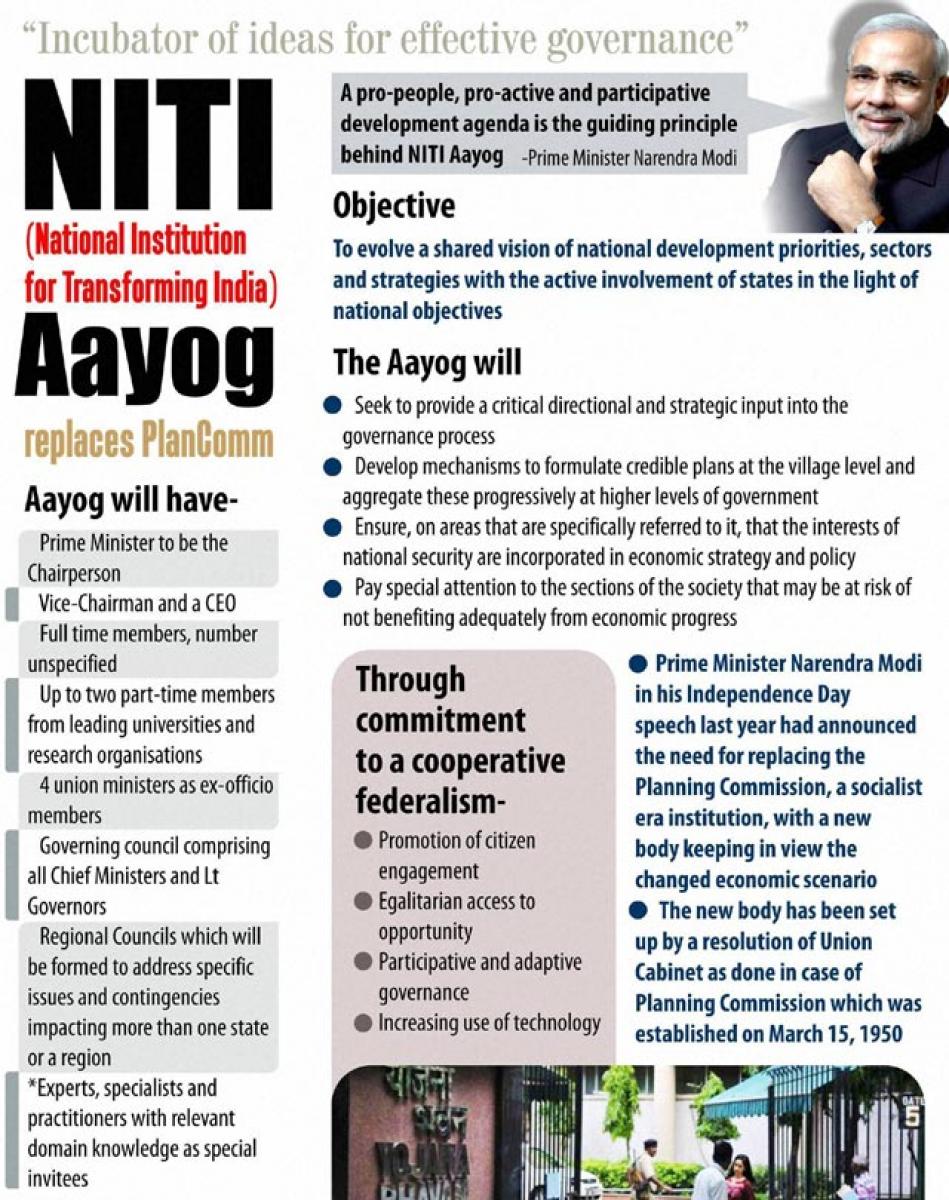Live
- GMR Airports Unveils AI-Powered Digital Twin Platform to Transform Airport Operations
- India poised to become leading maritime player: PM Modi
- Top Causes of Kidney Stones and How to Recognize Silent Symptoms
- India’s renewable energy capacity logs 14.2 pc growth at 213.7 GW
- Winter Session of Odisha Assembly adjourned sine die
- Biden calls Trump's tariff approach 'major mistake'
- After Drama Over Eknath Shinde’s Chief Minister Race, Maharashtra Cabinet Formation Faces New Tensions
- Egyptian FM, Blinken discuss recent developments in Syria
- Iran's supreme leader says Syria's developments result of US-Israeli 'plot'
- Elon Musk to Purchase $100 Million Luxury Mansion Next to Donald Trump's Mar-a-Lago, Report Reveals
Just In

Some Chief Ministers have alleged that the State Governments powers are being usurped by the Centre. This was made plain at the Inter-State Council meeting recently.
Some Chief Ministers have alleged that the State Governments powers are being usurped by the Centre. This was made plain at the Inter-State Council meeting recently. Undeniably, there has been a trend towards centralization of the polity wherein States have very little say in matters concerning them, national level issues are a far cry.
In fact, it is alleged, and quite justified, that the Centre has been quietly shifting subjects from the ‘State List’ to the ‘Concurrent List’ and from the ‘Concurrent List’ to the ‘Union List’. True, Prime Minister Modi delved on the theme of cooperative federalism but in reality inter-action with States does not take place. Think. The meeting of the Inter-State Council was being held for the first time in 10 years.
Add to this, after the winding up of the Planning Commission, the Niti Aayog does not hold consultations with State Governments about their demands. This is not all. Not a few States pointed out that the Centre keeps disregarding the recommendations of the Aayog just as it ignores the States’ views. Importantly, as the Council meeting was held after the Supreme Court’s verdict on the role of Governors, there was much dissatisfaction among the non-BJP ruled States.
Apart from the West Bengal Chief Minister, those from Bihar, Delhi and even the Punjab Deputy Chief Minister (BJP ally) complained that States were being denied a say in the decision-making process. Scandalously, even the agenda for the meeting was not discussed with the States. While Tamil Nadu and many others criticized the shortfall of funds for education, West Bengal underscored that any move for pushing certain kinds of ideologies and doctrines into the syllabus in the name of improvement would be stoutly resented.
The Centre on its part highlighted the need for Sarva Siksha Abhiyan and emphasized that there was no reason whatsoever for lesser funds in this very important sector. However, the most contentious matter was the Punchi Commission recommendations. Wherein, Articles 355 and 356 are proposed to be amended to enable the Centre to bring specific trouble-torn areas under its rule for a limited period.
Along-with amending the Communal Violence Bill to allow deployment of Central forces without State consent for a short period. This again, not a few felt, was an attempt by the Centre to interfere in the functioning of the States. Raising a moot point: Can these activities not be carried out by the States? Do they need the help from the Centre? Are the States incapable of looking after internal security?
Meanwhile, State Governments finances are quite critical whereby the “States may collapse under the weight of repayment dues and interest burden by 2016-17”, warned Bengal Chief Minister Mamata Banerjee. Interestingly, she was supported by a few of her counterparts. All stressed that in a federal polity, the Centre should find a way out of this impasse.
Even the recent episode in Arunachal Pradesh underlines the fact that if the judiciary was not strong, the Central Government would merrily continue to topple Governments in Opposition ruled States. Undoubtedly, the current trend towards centralization is nothing new. It started with Indira Gandhi whose centralization not only unified the opposition but also denigrated the Congress Party’s institutions, leading to its weakening over a period of time.
In addition, during UPA-1 and II, the central Congress leadership constantly interfered in the affairs of States, deputing both weak and strong central leaders, such as Prithviraj Chavan and Virbhadra Singh, to govern Maharashtra and Himachal. The power exercised by Mamata Banerjee, Jayalalithaa, Badal family, Naveen Patnaik, and the Yadav Parivar in Uttar Pradesh is well known to need recounting. Control over patronage necessitates the accumulation of power in the offices of the Prime Minister and Chief Ministers.
Additionally, to subvert the arrangements in the Constitution, the Centre would often impose ‘super tax’ on top of income tax and appropriate the entire revenue collected therein on the ground that it was not part of income tax collection. Clearly, our politicians plan according to their own perspectives, read their own interests on projects dear to them which take precedence, while others are ignored.
Appallingly, the Centre too is following this policy wherein it does not think it necessary to consult States in vital matters such as internal security, education, health etc. Whatever little consultation takes place is because of the pressure of Parties which are in the opposition in States but strong
in Parliament.
By Dhurjati Mukherjee

© 2024 Hyderabad Media House Limited/The Hans India. All rights reserved. Powered by hocalwire.com







